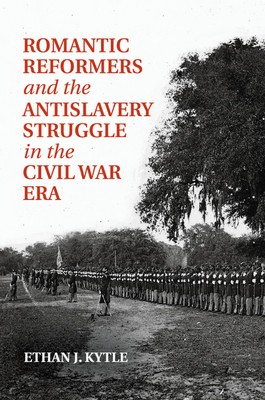
- We will send in 10–14 business days.
- Author: Ethan J Kytle
- Publisher: Cambridge University Press
- ISBN-10: 1107426987
- ISBN-13: 9781107426986
- Format: 15.2 x 22.9 x 1.8 cm, softcover
- Language: English
- SAVE -10% with code: EXTRA
Romantic Reformers and the Antislavery Struggle in the Civil War Era (e-book) (used book) | bookbook.eu
Reviews
Description
On the cusp of the American Civil War, a new generation of reformers, including Theodore Parker, Frederick Douglass, Harriet Beecher Stowe, Martin Robison Delany, and Thomas Wentworth Higginson, took the lead in the antislavery struggle. Frustrated by political defeats, a more aggressive Slave Power, and the inability of early abolitionists like William Lloyd Garrison to rid the nation of slavery, the New Romantics crafted fresh, often more combative approaches to the peculiar institution. Contrary to what many scholars have argued, however, they did not reject romantic reform in the process. Instead, the New Romantics roamed widely through romantic modes of thought, embracing not only the immediatism and perfectionism pioneered by Garrisonians but also new motifs and doctrines, including sentimentalism, self-culture, martial heroism, romantic racialism, and Manifest Destiny. This book tells the story of how antebellum America's most important intellectual current, romanticism, shaped the coming and course of the nation's bloodiest - and most revolutionary - conflict.
EXTRA 10 % discount with code: EXTRA
The promotion ends in 20d.18:24:16
The discount code is valid when purchasing from 10 €. Discounts do not stack.
- Author: Ethan J Kytle
- Publisher: Cambridge University Press
- ISBN-10: 1107426987
- ISBN-13: 9781107426986
- Format: 15.2 x 22.9 x 1.8 cm, softcover
- Language: English English
On the cusp of the American Civil War, a new generation of reformers, including Theodore Parker, Frederick Douglass, Harriet Beecher Stowe, Martin Robison Delany, and Thomas Wentworth Higginson, took the lead in the antislavery struggle. Frustrated by political defeats, a more aggressive Slave Power, and the inability of early abolitionists like William Lloyd Garrison to rid the nation of slavery, the New Romantics crafted fresh, often more combative approaches to the peculiar institution. Contrary to what many scholars have argued, however, they did not reject romantic reform in the process. Instead, the New Romantics roamed widely through romantic modes of thought, embracing not only the immediatism and perfectionism pioneered by Garrisonians but also new motifs and doctrines, including sentimentalism, self-culture, martial heroism, romantic racialism, and Manifest Destiny. This book tells the story of how antebellum America's most important intellectual current, romanticism, shaped the coming and course of the nation's bloodiest - and most revolutionary - conflict.


Reviews